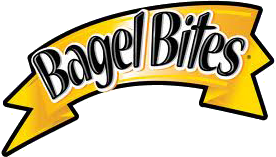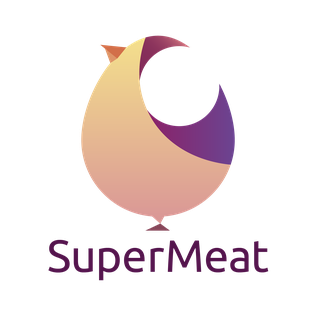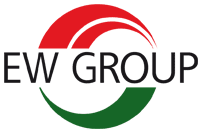
The meat-packing industry handles the slaughtering, processing, packaging, and distribution of meat from animals such as cattle, pigs, sheep and other livestock. Poultry is generally not included. This greater part of the entire meat industry is primarily focused on producing meat for human consumption, but it also yields a variety of by-products including hides, dried blood, protein meals such as meat & bone meal, and, through the process of rendering, fats.

The meat industry are the people and companies engaged in modern industrialized livestock agriculture for the production, packing, preservation and marketing of meat. In economics, the meat industry is a fusion of primary (agriculture) and secondary (industry) activity and hard to characterize strictly in terms of either one alone. The greater part of the meat industry is the meat packing industry – the segment that handles the slaughtering, processing, packaging, and distribution of animals such as poultry, cattle, pigs, sheep and other livestock.

The Oldenburg Münsterland, otherwise called Oldenburger Münsterland or Oldenburgisches Münsterland, is a region in Lower Saxony, Germany and the administrative area that comprises the federal districts of Cloppenburg and Vechta. It forms the southern part of the historical region of Oldenburg Land, so it is also called Südoldenburg. The inhabitants of the region accordingly call themselves Südoldenburger, with the denominative Oldenburger Münsterländer being rather uncommon.

Charcuterie is a branch of French cuisine devoted to prepared meat products, such as bacon, ham, sausage, terrines, galantines, ballotines, pâtés, and confit, primarily from pork.

Bagel Bites are a brand of frozen pizza bagel snacks produced by Kraft Heinz.

Visbek is a municipality in the district of Vechta, in the Oldenburg Münsterland region of the state of Lower Saxony, Germany.

Poultry farming is a part of the United States's agricultural economy.

Vion N.V. is an internationally operating company of the meat and food industry with headquarters in Boxtel, Netherlands. It is among the largest meat producers in Europe, with production sites in the Netherlands, Germany and Belgium. In 2021, the company had a revenue of €4.6 billion.

Empire Kosher Poultry, Inc. is the largest producer of kosher poultry in the United States. The company's headquarters, hatchery and processing facility are located in Mifflintown, Pennsylvania.

The broiler industry is the process by which broiler chickens are reared and prepared for meat consumption. Worldwide, in 2005 production was 71,851,000 tonnes. From 1985 to 2005, the broiler industry grew by 158%.

The Bell Food Group is the leading meat processor and manufacturer of convenience products in Switzerland. The company was founded in 1869 by Samuel Bell in Basel, where its headquarters is located. Its range of products includes meat, poultry, charcuterie, seafood and convenience products. Brands include Bell, Abraham, ZIMBO, Môssieur Polette and Hilcona. The Bell Food Group has 65 locations in 15 European countries and employs 11,960 people, as of 2019.

SuperMeat is an Israeli startup company working to develop a "meal-ready" chicken cultured meat product created through the use of cell culture.

Astrid Katharina Josefine Grotelüschen is a German politician of the Christian Democratic Union (CDU) who has been serving as a member of the German Bundestag since the 18th general election, having won the direct mandate in the constituency of Delmenhorst – Wesermarsch – Oldenburg-Land in both the 2013 and 2017 general elections. She was already a directly elected member of the German Bundestag from 2009 to 2010, and from April 2010 until her resignation in December of the same year, State Minister for Food, Agriculture, Consumer Protection and Regional Development of Lower Saxony.

Poly-clip System is a German family-owned company based in Hattersheim near Frankfurt am Main. Poly-clip System is the largest provider of clip closure systems worldwide and the world market leader and hidden champion in this sector of the food industry and packaging industry.

During the COVID-19 pandemic in Canada, outbreaks of the virus took place in factories operated by the meat packing industry and the poultry processing industry. These outbreaks affected multiple plants, leading to closures of some factories and disruption of others, and posing a threat to the food supply in Canada.

The EW Group is a German multinational family-owned livestock breeding group. It is the world market leader in breeding and genetics of poultry and tilapia. It comprises 53 German and 220 foreign companies under the parent company EW Group GmbH with headquarters in Visbek. Founder and manager of the group is Erich Wesjohann.
The WIMEX Group is an internationally active German company in the meat and agricultural industry, based in Köthen, Saxony-Anhalt. With an annual capacity of 435.455 million hatching eggs, it is the largest producer of day-old chicks for chicken fattening in Europe and one of the world's largest suppliers of broiler chickens of the Cobb breed. Its revenue in 2021 was €295,158 million. Just under 50 percent of the company's shares are owned by the PHW Group.

Plukon Food Group is an internationally active corporate group in the meat industry. It is one of the largest processors of poultry meat in Europe.

LDC is the largest poultry meat group in Europe. LDC carries out 578 million animal slaughters per year. The total revenue amounted to €5.1 billion in 2021/22.




















